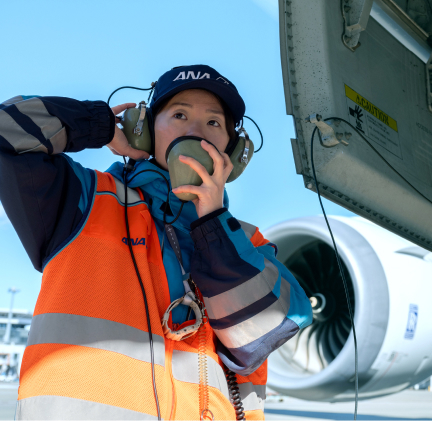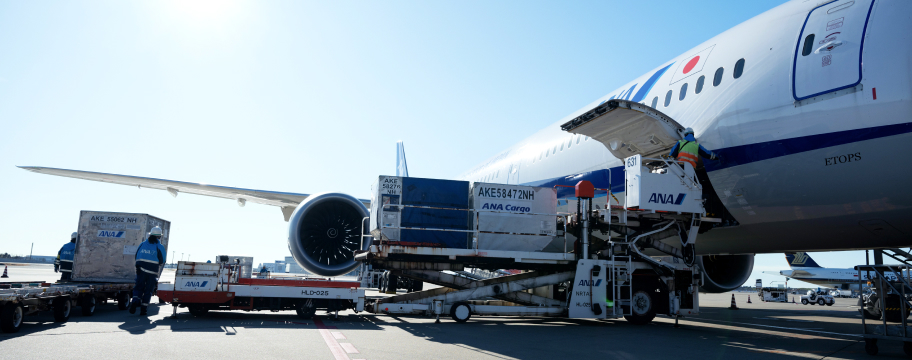Operations Management

Agilely responding to ever-changing conditions
to safeguard safety in the air and on-time performance.

Operations support
Staff members support smooth flight management and safe flights for aircraft, with job duties including flight scheduling, adjusting flight crews and aircraft landing and takeoff control. At the Narita Operations Center (NOC), staff members monitor aircraft movements in real time and respond to weather and air traffic changes. They also perform the roles of proposing and executing response plans during emergencies, managing aircraft maintenance schedules, and ensuring compliance with the Civil Aeronautics Act and safety standards.
Main job duties

Handling control
Airport handling requires achieving both safety and on-time performance. To send off each flight safely and on time, staff members manage the times for all processes from arrival to departure, including the status of Passenger Services, cargo loading and unloading operations, loading of the aircraft’s supplies, cabin cleaning and fueling.

Flight dispatch assistance
Staff members accurately identify routes that are safe for aircraft to fly and constantly changing weather information to support flight crews from the ground. They also provide flight monitoring including for landings and takeoffs, and perform the function of collecting information from various sources and communicating it to optimize operations.

Radio and ATC job duties
Operators exchange information over the radio with aircraft on the ground at Narita Airport and communicate the necessary information to flight crews, including weather information and changes in the arrival apron. Operators also monitor radio communication with Air Traffic Control (ATC) and flight crews and promptly share the necessary information with relevant parties.

Load control
These job duties involve managing the aircraft’s overall weight and weight balance, including passengers, their baggage, cargo and fuel. While coordinating with passenger and cargo departments, staff adjust the load capacity and load positions of baggage and cargo to create efficient loading plans that allow the aircraft to fly safely.

Spot control
These job duties involve adjusting the apron parking spots used by departing and arriving flights. Staff enable smooth airport operations by promptly adjusting allotment of the apron parking spots amid changing conditions, including delayed flights and irregularities.
Acquired skills

Ability to manage operations for a flight
The knowledge and skills gained in performing operations management can expand future opportunities to play an active role at domestic and overseas airports where ANA operates routes.

Agile responsiveness
You will acquire the ability to agilely respond to unforeseen situations, such as flight management during emergencies and abnormalities. This includes the skills of identifying problems and swiftly implementing effective solutions.

Situational judgment
You will improve your ability to make prompt and effective determinations in real time for evolving situations, such as adjusting aircraft departures and arrivals as well as flight schedules.





























